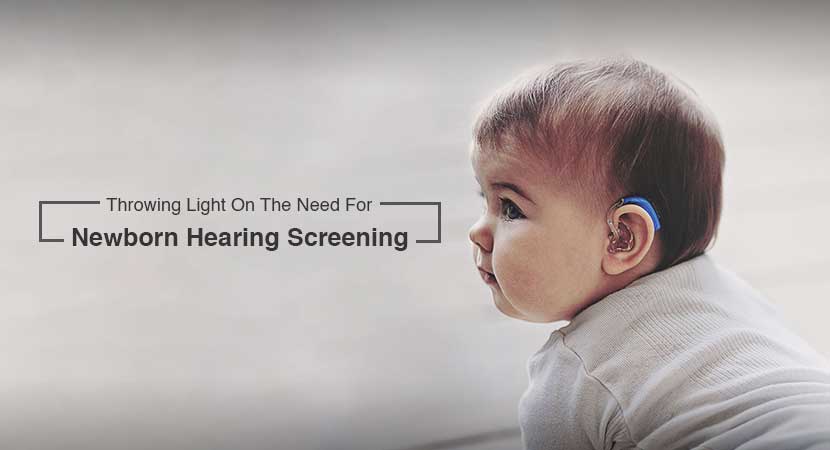Hearing Screening For Newborns: The Essentiality
When it comes to matters that concern our babies, we all are extra-cautious. Still, most parents tend to overlook the necessity of hearing screening tests as they most often do not understand the importance of it. It is always better to be safe than sorry. A hearing impairment detected at an early stage can be easily cured. The same condition, if it goes unnoticed can result in lifelong impacts.
A newborn hearing test is usually recommended by hospitals when an infant fails the first screening test. The second screening is generally conducted at a diagnostic center that is equipped with specialized equipment for it. While simple issues like excess amniotic fluid in the ear canal may resolve with time and not lead to adverse consequences, serious issues can lead to permanent hearing impairment.
This is precisely why hearing screening for newborns to check if the baby can hear correctly or not is critical. The step can have an impact that lasts for an entire lifetime.
Hearing Assessment In Newborn: Diagnosing Hear Loss
The kind of hear loss an assessment finds in an infant depends upon the part of the ear which is affected and the cause of it. In general, there are two types of hearing loss:
- Conductive: It happens when there are issues with either the middle ear or the outer ear. Some causes can be:
- Infection in the middle ear
- Fluid trapped in the ear from birth
- The outer ear has impacted wax
- The ear is malformed or its associated structures
Conductive hearing loss in an infant can be resolved either through surgery or treatment. While surgery is always an option, children who suffer from conductive loss adapt to hearing aids exceptionally well.
- Sensorineural: It occurs when there is an issue in the inner part of the ear or along the primary auditory nerve. Sensorineural loss is permanent. While a cochlear implant or some other hearing aid can be utilized to improve hearing, the damage can’t be corrected via surgery.
Also Read: Blood Test A Month Keeps Health In Check!
Newborn Hearing Test: Degree Of Hear Loss
A hearing screening for newborns also informs about the degree of loss suffered by the infant. A degree here means the severity of lack of hearing. The scale on which it can occur ranges from mild (lowest) to profound (maximum). Even if the test proves the loss to be mild, the consequences can be significant. For example, even a small loss in hearing can make it harder for a small child to develop speech and language which, in turn, impacts success in life.
After a newborn hearing loss is conducted and the type and severity are determined, a doctor advises in the correct course of action. Generally, the baby is fit with a hearing aid by a pediatric audiologist. The audiologist adjusts the hearing device in accordance with the loss suffered. Over the course of years and as the baby develops, the audiologist also monitors the progress in hearing.
No matter the type of loss sensorineural, conductive, or a mixture, hearing screening and treatments can only go so far. Parental involvement is crucial for further development. The parents not only should encourage the use of aids but also work on therapeutic exercises.
